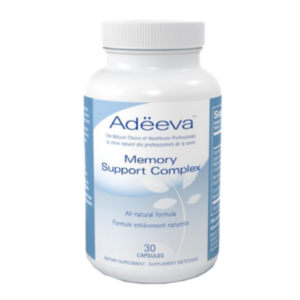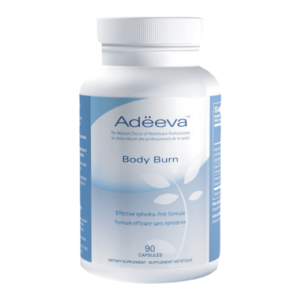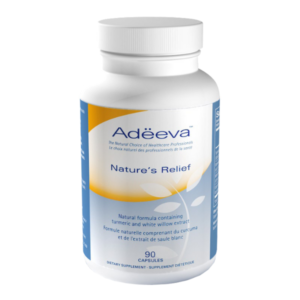
Unlocking the Secrets to Alzheimer's Prevention: A Glimpse into Promising Research
Source: Tufts University Research, June 2022 (Free Radical Biology and Medicine Journal)
Lifestyle Medicine Update (November 15, 2022)
Introduction:
Alzheimer’s disease, a relentless adversary that relentlessly chips away at memory and cognitive function, has firmly established itself as the sixth leading cause of death in the United States, impacting the lives of over 6 million Americans. As its prevalence continues to rise, the urgency to unlock the secrets of prevention intensifies. While Alzheimer’s most common form, which is not genetically rooted, still eludes a complete understanding of its causes, strides are being made in the field of research. The year 2022 brought forth a glimmer of hope, with Tufts University at the forefront of new discoveries.
The Alzheimer’s Conundrum: Unmasking Beta-Amyloid Plaque Formation
One of the critical factors in Alzheimer’s disease is the formation of beta-amyloid plaques. Experts widely concur that preventing the accumulation of these plaques is a pivotal strategy to ward off the disease. However, no drugs to date have proven unequivocally effective in this regard. Tufts University Researchers ventured into the realm of Alzheimer’s with a determination to change the narrative.
A Breakthrough Study in Free Radical Biology and Medicine
Their journey led them to an experimental study published in the journal Free Radical Biology and Medicine in June 2022. In this groundbreaking endeavor, they delved into the intricate world of Alzheimer’s-afflicted brain cells within a laboratory setting. Their quest was to explore the potential of 21 different compounds in inhibiting the formation of beta-amyloid plaque, a defining characteristic of Alzheimer’s.
Four natural compounds emerged as the unsung heroes in this battle. These compounds displayed an ability to thwart the formation of beta-amyloid plaque in Alzheimer’s-affected brain cells. Among the heroes are polyphenols and catechins, with EGCG found in green tea, as well as resveratrol, a flavonoid present in grapes, blueberries, cranberries, peanuts, pistachios, and cocoa. Additionally, curcumin, a potent component in turmeric, and CDP-choline, a supplement known to enhance memory performance, also joined the ranks of the plaque inhibitors. Intriguingly, the type 2 diabetic drug Metformin showcased a similar effect, strengthening the lineup of potential defenders.
The Tufts University Researchers recognized that not all compounds are created equal. Some are more bioavailable than others, and some navigate the blood-brain barrier with greater efficiency. As such, their findings present a promising pathway towards Alzheimer’s prevention and treatment.
Practical Steps for Alzheimer’s Prevention
Based on this newfound knowledge, several practical steps emerge for those who wish to proactively reduce their risk of Alzheimer’s disease. These steps align with the compounds that have shown promise in inhibiting beta-amyloid plaque formation.
- Green Tea Catechins: The research suggests drinking 3-5 cups of green tea daily or taking a supplement containing at least 300 mg of green tea catechins daily. A 2020 study published in the journal Molecules demonstrated that this dosage range enhanced working memory in a human clinical trial. This 12-week randomized, placebo-controlled trial involved 50-69 subjects.
- Resveratrol: Incorporate foods rich in resveratrol, such as grapes, blueberries, cranberries, peanuts, pistachios, and cocoa, into your diet. Additionally, consider a supplement that contains resveratrol. These steps can contribute to a robust defence against Alzheimer’s.
- CDP-Choline and Memory Support: After crossing the threshold of 50-55 years, embark on a memory-boosting journey with a supplement that includes CDP-choline. This compound is best complemented by other memory-enhancing agents like Phosphatidylserine, Huperzine A, and Bacopa Monnieri.
- Curcumin and Boswellia: Enhance your culinary endeavors with the addition of the spice turmeric, which contains curcumin. However, curcumin’s bioavailability is limited. To overcome this, consider a daily combination supplement that features curcumin, Boswellia, white willow extract, and ginger. Together, these natural agents contribute to inflammation prevention and impede key steps in cancer development. Notably, curcumin and Boswellia possess the ability to cross the blood-brain barrier, exerting an array of neuroprotective effects.
The Lifestyle Medicine Approach
Alzheimer’s research consistently underscores the pivotal role of lifestyle medicine in reducing the risk of the disease. The regular incorporation of green tea catechins, resveratrol, curcumin, and CDP-choline into one’s daily regimen can become integral components of an Alzheimer’s disease prevention program.
The journey towards Alzheimer’s prevention is ongoing, marked by promising discoveries and a growing understanding of the role of nutrition and supplementation. These practical steps offer a glimpse into the potential of a future where Alzheimer’s disease is not only better understood but also more effectively managed.
References
- Silveira I.A. et al. Screening neuroprotective compounds in herpes-induced Alzheimer’s disease cell and 3D tissue models. Free Radical Biology and Medicine. 2022; 186:76-92. [Read the full study here](https://www.sciencedirect.com/science/article/pii/S0891584922001770?via%3Dihub).
- Baba Y et al. Effect of daily intake of green tea catechins on cognitive function in middle-aged and older subjects: A randomized, placebo-controlled study. Molecules. 2020; 25(18): 4265. [Read the full study here](https://www.ncbi.nlm.nih.gov/pmc/articles/PMC7570631/).
Dr. Meschino
Recommended Supplements

Dr. James Meschino
ABOUT THE AUTHOR
Dr. James Meschino, DC, MS, ROHP, is an educator, author, and researcher having lectured to thousands of healthcare professionals across North America. He holds a Master’s Degree in Science with specialties in human nutrition and biology and is recognized as an expert in the field of nutrition, anti-aging, fitness, and wellness as well as the author of numerous books.




